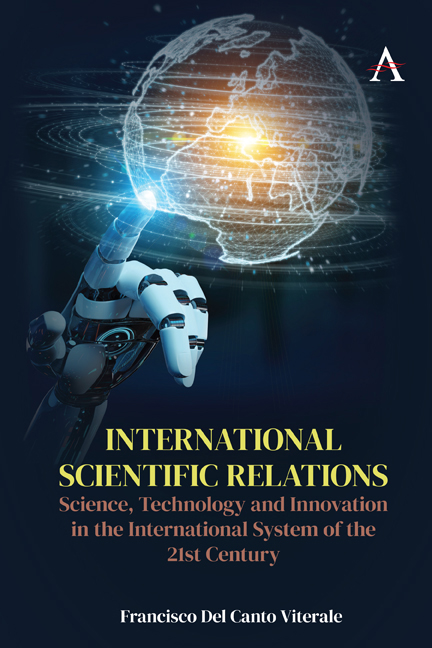 International Scientific Relations
International Scientific Relations 3 - Actors
Published online by Cambridge University Press: 08 October 2021
Summary
Actors are considered to be the central units of the international system, which is where they exist and interact. They are, essentially, dynamic parts or elements of the system that constantly interact between themselves through a large variety of ways (conflict, cooperation, competition, etc.) with the goal of satisfying their personal interests. Currently, we can identify a large variety and quantity of actors, both State (countries) and non-State (companies, international organizations), that coexist and interact as parts of the international system.
To be considered as an international actor, one must have the capacity of creating or participating in relations that are internationally significant for the international system as a whole. This means that we must not include in this concept groups or entities that, despite having played an important role in the international scene in a particular historical moment, have lost that prominence as a consequence of the changes that took place in international society, or those that are somewhat relevant in a field but not in others.
In the current historical context of the beginning of the 21st century, we can differentiate a vigorous group of actors with a need to participate in and influence the field of ISR. Some of them have a long tradition in the production and management of scientific knowledge, while others are looking to become more deeply involved in the dynamics and processes of STI for the very first time.
Old and New Actors
Among the most relevant changes in the international system in recent decades, there are changes in the number, power, function, and behavior of actors. In our current international context, the modern Nation-State has started showing signs of fatigue, while the international prominence of new non-State entities is growing. This same reality can be observed in the subfield of ISR, where traditional actors are trying to adapt to the new relevance of scientific knowledge, while new actors, both State and non-State, are starting to show interest in participating in this increasingly dynamic system. All of them are going through a strong reconfiguration of their old functions, their roles as scientific and social actors, and in the way in which they interact with their peers and with the rest of the actors within ISR.
- Type
- Chapter
- Information
- International Scientific RelationsScience, Technology and Innovation in the International System of the 21st Century, pp. 41 - 70Publisher: Anthem PressPrint publication year: 2021


